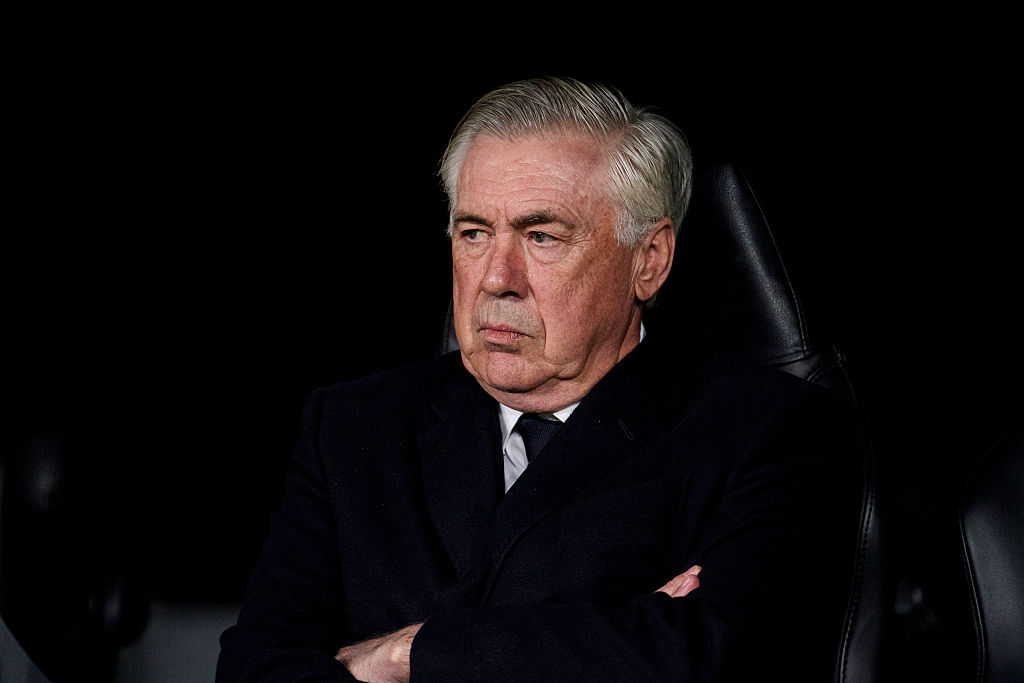Meet the man who can save Fulham's miserable season
George Tsitsonis sheds light on the man Rene Meulensteen's men are banking on - Kostas Mitroglou...
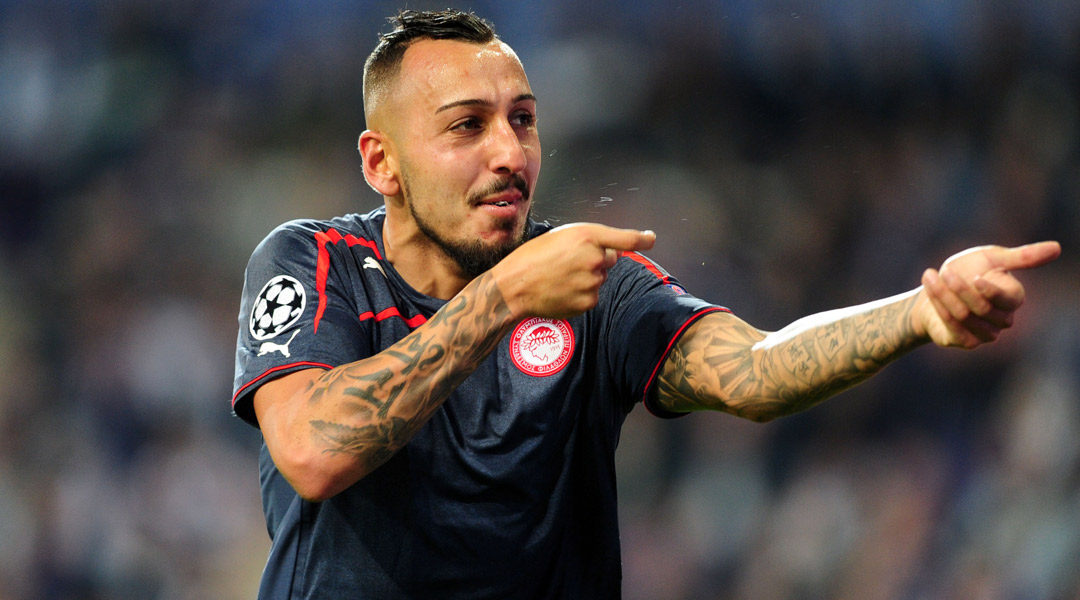
Fulham’s pursuit of Kostas Mitroglou ended with a deadline-day deal which saw the London side get their man for a club record £12.4 million.
The 25-year-old comes to England with strong pedigree in Greek football, but questions about his suitability for a Premier League relegation scrap are already in the air. Fulham are struggling at the bottom of the league, after all, and will need goals from their new man immediately to stand a chance of avoiding the drop.
Mitroglou’s switch to Craven Cottage was a surprise. Many top level clubs on the continent had shown an interest in snapping up the Greece man, including Arsenal, Liverpool, and Borussia Dortmund, but it seems Mitroglou’s move to west London was driven by one thing above all else: playing at the top level. Those close to the striker insist it's the player’s greatest motivation, and at Fulham he is guaranteed the chance to prove himself. A brief glance at his past proves the importance of first-team football to him.
Born: Kavala, Greece
Age: 25
Height: 6ft 2in
Senior clubs: Borussia Mönchengladbach II, Olympiakos, Panionios (loan), Atromitos (loan)
2013/14: 12 apps, 14 goals (SL); 5 apps, 3 goals (CL)
This won’t be Mitroglou’s first time playing away from his homeland. The player known as 'The Pistolero' for his gun-toting celebrations, was born in Greece but began his playing career in Germany after his family emigrated there when he was two years old. The striker made inroads as a youngster at MSV Duisburg, before moving on to Borussia Mönchengladbach four years later, where he impressed in die Fohlen's second string.
Although eligible to play for Germany, Mitroglou quickly pledged allegiance to his birth country. A superb showing for Greece at the 2007 U19 European Championship saw him net three goals and lead his country to the final, where they lost to Spain. On the way, Mitroglou led Greece past the semi-finals against a Germany side which included the likes of Mesut Özil, Jerome Boateng, Benedikt Höwedes and Sidney Sam.
Get FourFourTwo Newsletter
The best features, fun and footballing quizzes, straight to your inbox every week.
Having lit up the U19 Bundesliga with Gladbach, his progress was monitored by several Greeks clubs, and Olympiakos signed him in 2007. The talented youngster was tipped for big things with the Greek giants, but things didn’t quite work out as planned. Initially he enjoyed a solid first season for the Piraeus club, and played his part in their title-winning campaign of 2007/08 with seven goals. Then, [current Athletic Club boss] Ernesto Valverde took the reins in 2008 - and the Spaniard’s first impression of the player was not a good one. Mitroglou missed a penalty in a Champions’ League qualifier away to Anorthosis, having defied the coach’s orders for a different player take the spot-kick.
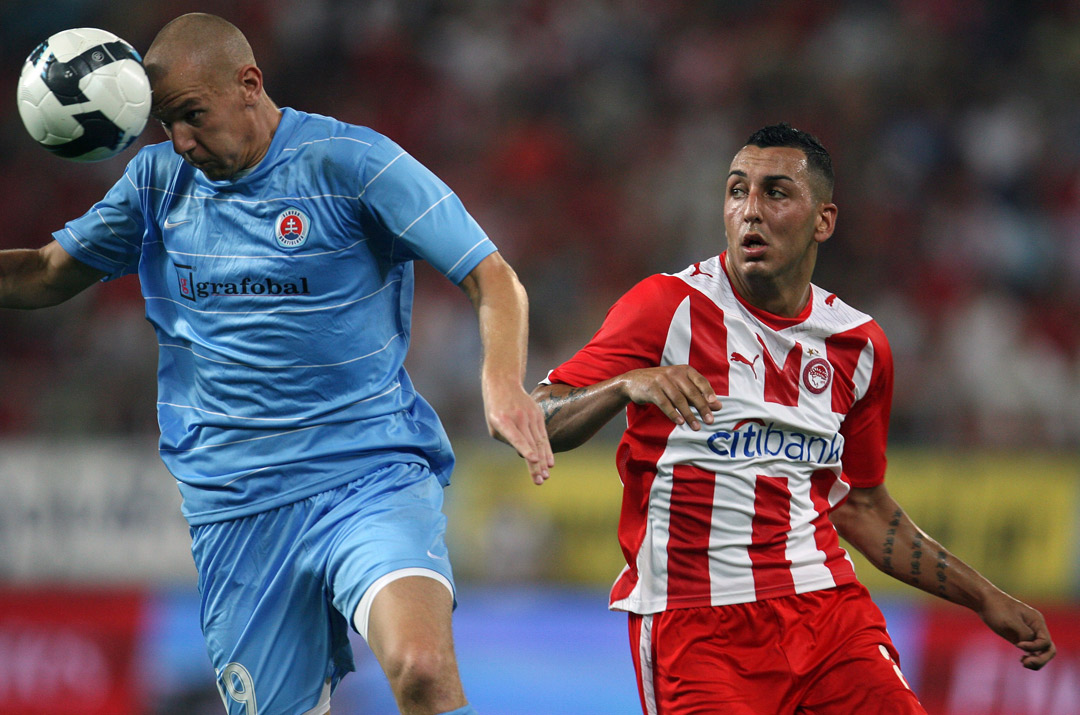
It proved the start of the pair’s uneasy relationship. Valverde enjoyed success with the club over two spells (2008-09 and 2010-12), but Mitroglou played only sporadically. Suddenly there were questions about the player’s character and his commitment to training. Mitroglou’s time at Olympiakos looked to be running out.
Two loan spells in consecutive seasons revitalised the striker's career. When Mitroglou joined Panionios in January 2011, the Athens-based side were rooted to the bottom of the table. Four months later they finished a respectable 10th in the league, 10 points clear of the drop. Fulham supporters will be glad to know that the catalyst for that remarkable turnaround was their new man, eight goals in 11 matches for ‘Mitrogoal’ saving the club from near-certain relegation.
The statistics speak for themselves: 23 goals in 25 matches, top scorer in the Greek Super League, a hat-trick against Anderlecht in the Champions League and six goals for Greece.
Still, though, the Greek's goalscoring exploits weren't enough to convince Valverde. A season-long loan to Atromitos followed, and Mitroglou continued his fine form by leading his new side to third with 16 league goals, second only to current Everton forward [and then-Olympiakos man] Kevin Mirallas.
The two loan stints showcased Mitroglou’s greatest strengths. First was his finishing - the calmness with which he could find the net from any position - and, just as important, his ability to create chances for himself. Mitroglou’s creativity and one-on-one moves in the box were responsible for many unassisted goals.
Upon his return, with Valverde gone at the 2011/12 season's end, Mitroglou finally got his real chance with Olympiakos. The goal-getting hitman snatched the opportunity too, finishing the season with 20 goals from just over 40 matches. It was the precursor to this season, and his true breakthrough year. The statistics speak for themselves: 23 goals in 25 matches, top scorer in the Greek Super League, a hat-trick against Anderlecht in the Champions League (the first Greek player to do so), and six goals for Greece, including three crucial strikes in the two-legged World Cup qualification play-off against Romania that put his nation in the pot for Brazil.
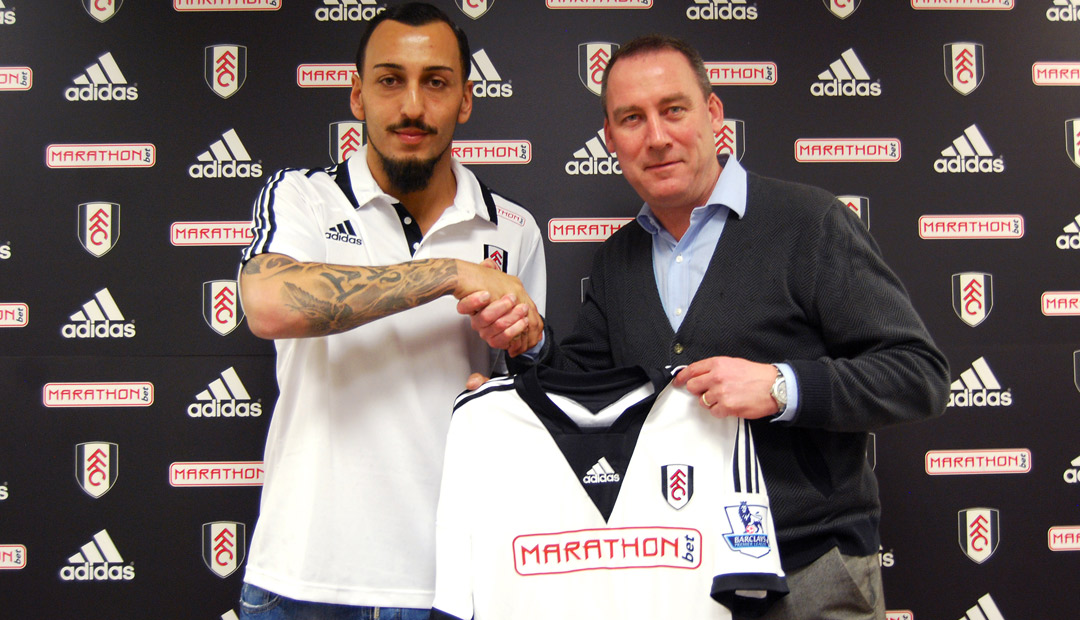
Greece boss Fernando Santos probably encapsulated Mitroglou’s rise to prominence best when he said: “The Mitroglou I see now is much different than the one I first saw with the national team. He has changed as a player, but also as a character. He is much more calm and it shows with his play on the pitch.”
What you see is not exactly what you get with Mitroglou. While his numerous tattoos and facial hair point to an extrovert, the truth is that Mitroglou is a humble star ill at ease in front of cameras and during interviews. In Greece he was sometimes criticised for not being completely fluent, but this is a player who prefers to do his talking on the pitch.
Coming from a league of a lower standard, it's only natural that some are yet to be convinced that he can do the business in England. But Mitroglou’s improvement over the last three years has been down to his insatiable hunger to become a top player in Europe. The Premier League could be the perfect place to show off his skills. Mitroglou’s size, strength and combination play make him an ideal target man, but he is more than just a good hold-up player. He should endear himself to Fulham supporters with his creativity in attack and impressive range of his goals, as a player equally at home in the penalty box as he is operating outside the area.
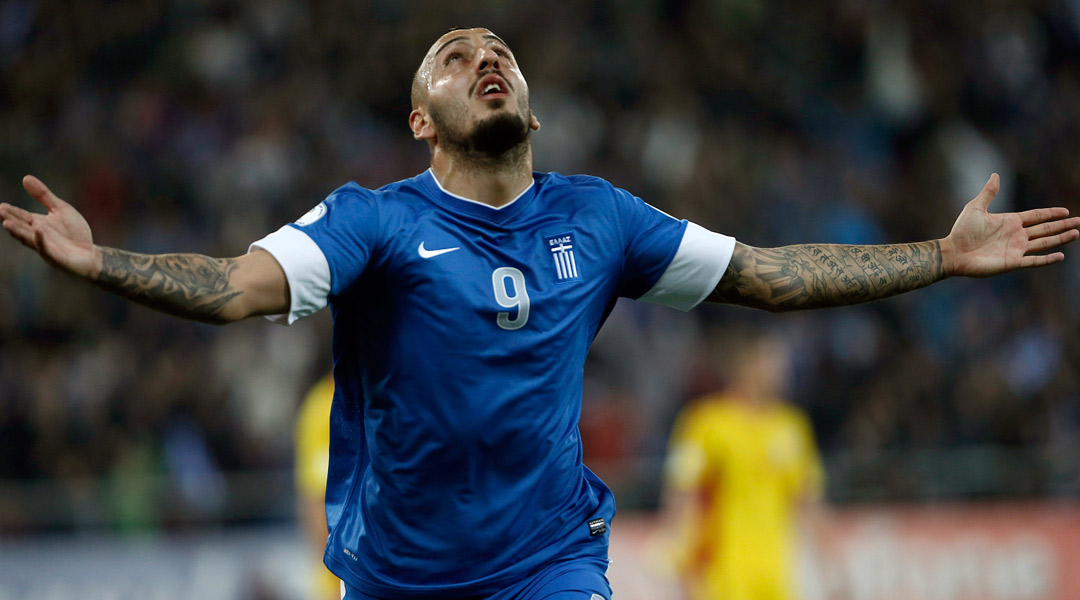
He does not yet have the Premier League pedigree of the recently departed Dimitar Berbatov, but his deft touches and inventiveness in the penalty box will remind some of the Bulgarian. Surely, the Greek’s work-rate will succeed that of his predecessor, and those taking in matches at Craven Cottage will see no shortage of effort from a true two-footed finisher who is also strong in the air.
Keeping up with the speed of the English game is something the striker will have to prove, but first get used to. Though not exactly slow, a lack of obvious pace may be an issue. There will also be questions of his stamina over 90 minutes in the cut and thrust of English football.
Eric Cantona was a superb player, one of the best. I used to watch Cantona hold the ball up high. Mitroglou is that type of player.
Still, the positives seem to outweigh the negatives and Fulham obviously trust the player’s abilities. It is worth remembering that Mitroglou’s admirers over the last six months have included the likes of Arsene Wenger, who labelled him “a true finisher who can’t be ignored”, and Jürgen Klopp, who travelled to Romania for the second leg of that World Cup play-off and reportedly liked what he saw.
Mitroglou’s former Olympiakos team-mate Roy Carroll believes Fulham are onto something special with their Greece international. The former Manchester United goalkeeper likened the striker to a player who left an indelible mark on the English game: “He is 25 and is hungry and passionate for football. Eric Cantona was a superb player, one of the best. I used to watch Cantona hold the ball up high. Mitroglou is that type of player. He is very strong too.”
Only time will tell if Carroll’s comparisons are wide of the mark, or whether they possess some degree of truth. But knowing Mitroglou’s journey from unappreciated loane to established star, Fulham fans can expect full commitment from their new man in troubled times.
